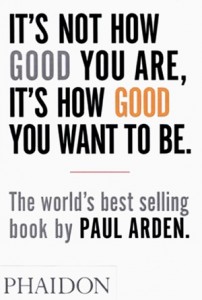
It’s hard to ignore a book written by the COO of the company you work for, especially when you get a signed copy for free. Lean In by Sheryl Sandberg is a book about women in the workforce,  mixed with some lessons on careers and success in business. Here are my takeaways:
- When I don’t feel confident, one tactic I’ve learned is that it sometimes helps to fake it. After an hour of forced smiling, I often felt cheerful. One study found that when people assumed a high-power pose for just two minutes, their testosterone went up and their stress hormone levels went down.
- Opportunities are rarely offered, they’re seized.
- Success and likeability are positively correlated for men. A willingness to make an introduction or advocate for or promote someone depends upon having a positive feelings about that person. We want to work with people who are like us.
- Mark Zuckerberg told me that my desire to be liked by everyone would hold me back. He said that when you want to change things, you can’t please everyone. If you do please everyone, you aren’t making enough progress.
- As of 2010, the average american had eleven jobs from the ages of eighteen to forty-six.
- Eric Schmidt explained that only one criterion mattered when picking a job — fast growth. When companies grow quickly, there are more things to do than there are people to do them. “If you’re offered a seat on a rocket ship, you don’t ask what seat. You just get on.”
- The cost of stability is often diminished opportunities for growth. Where risks were great, the potential rewards are even greater.
- Leadership is about making others better as a result of your presence and making sure that impact lasts in your absence.
Reading this book for business lessons was like searching for a needle in a haystack.

Paul Arden’s book is on advertising and motivation. The presentation of this book is as important as the content. It’s optimized for sales: has a catchy title and cover, cheap price, is easy to carry around (small and thin). Content of the book is easy to read and easy to share: big fonts, lots of photos. Here are some highlights:
- Talent helps, but it won’t help you as far as ambition. Everybody wants to be good, but not many people are prepared to make the sacrifices it takes to be great.
- You must develop a complete disregard for where your abilities end. Try to do things that you’re incapable of.
- You will remember from school other students preventing you from seeing their answers by placing their arm around their exercise book or exam paper. Somehow the more you give away the more comes back to you.
- Don’t look for the next opportunity. The one you have in hand is the opportunity.
- If you show him [client] what you want and not what he wants, he’ll say that’s not what he asked for. If, however, you show him what he wants first, he is then relaxed and is prepared to look at what you want to sell him.
- How you perceive yourself is how others will see you. The more strikingly visual your presentation is, the more people will remember it.
- Observe that an organization’s reputation is usually built on one or two key accounts.
Overall, it was a quick motivational read.


